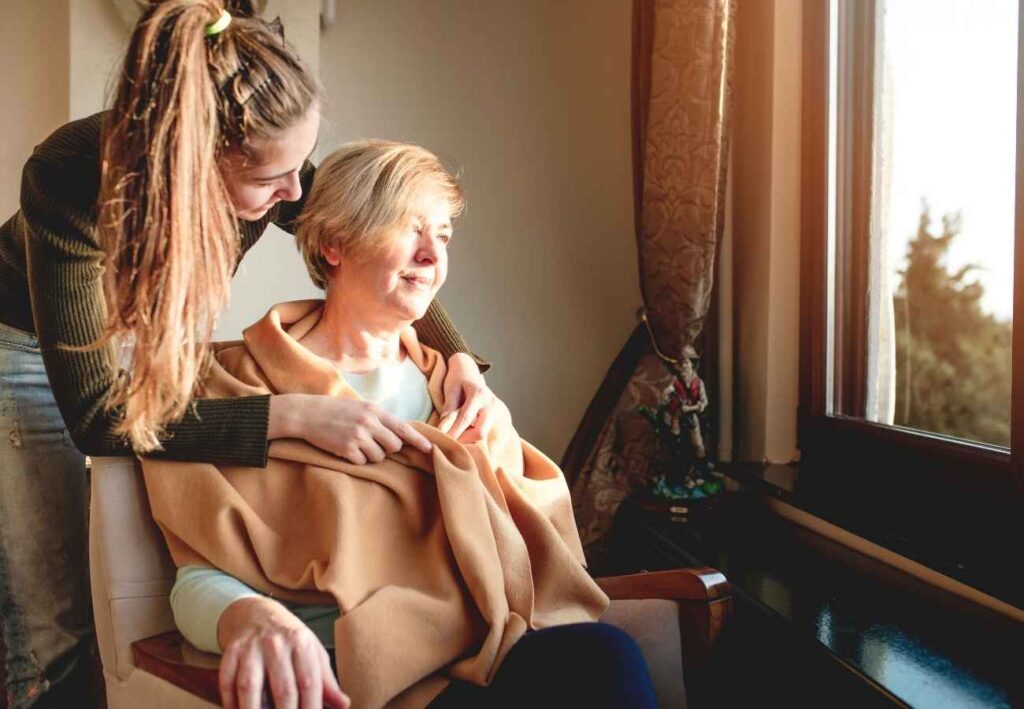Understanding Different Types of Elder Care Home Fortuna
When it comes to choosing an elder care home, the options can be overwhelming. This guide aims to demystify the landscape of elder care homes, helping you understand the different types of elder care homes available and assisting you in making the best decision for your loved ones. Whether you’re considering elder care homes in Fortuna or exploring the various models of care, let’s embark on this journey together.
Understanding the Need for Elder Care Homes
1. Changing Needs of Seniors
As seniors age, their needs often change, requiring specialized care and assistance that may not be readily available at home. This can include medical supervision, help with daily activities such as bathing and dressing, and social engagement to combat feelings of isolation. Elder care homes are designed to cater to these changing needs by providing a safe and supportive environment where seniors can receive the necessary care and support to maintain their quality of life.
2. Benefits of Elder Care Homes
Elder care homes offer a range of benefits, including professional medical care, companionship, and tailored assistance with daily activities. Choosing the right type of care home ensures that your loved ones receive the support they need. Additionally, elder care homes provide a safe and secure environment for seniors, giving their families peace of mind knowing that their loved ones are well taken care of. These facilities also often have various social and recreational activities, promoting an active and engaging lifestyle for the residents.
Exploring Different Types of Elder Care Homes
1. Assisted Living Facilities
Assisted living facilities, a common one among the types of elder care homes, provide a middle ground between independent living and nursing homes. Residents in assisted living maintain their independence but receive assistance with daily activities such as bathing, dressing, and medication management. These facilities often offer a range of social activities and amenities. Assisted living facilities aim to provide a comfortable and supportive environment for seniors.
2. Nursing Homes
Nursing homes, or skilled nursing facilities, are designed for seniors with more complex medical needs. Trained medical staff is available around the clock to provide medical care, rehabilitation services, and assistance with daily tasks. Nursing homes are suitable for individuals with chronic health conditions that require regular monitoring. These facilities often have specialized units for residents with specific conditions such as Alzheimer’s or dementia. Additionally, nursing homes may offer a range of therapies such as physical, occupational, and speech therapy to help residents regain or maintain their independence.
3. Memory Care Facilities
Memory care facilities specialize in providing care for individuals with Alzheimer’s disease or other forms of dementia. These facilities have staff trained to handle the unique challenges associated with memory loss, providing a safe and structured environment. Security measures are in place to prevent wandering, and activities are designed to engage residents cognitively. Memory care facilities often have specialized programs and therapies that focus on memory stimulation and cognitive improvement. Additionally, these facilities may also offer support groups and resources for families and caregivers dealing with the challenges of caring for someone with memory loss.
4. Independent Living Communities
Independent living communities are suitable for seniors who are still active and prefer a maintenance-free lifestyle. Residents in independent living communities typically live in private apartments or homes and have access to communal amenities. These communities focus on social engagement and may offer optional services such as housekeeping and transportation. Some independent living communities also provide organized activities and events to promote social interaction among residents. Additionally, these communities often have on-site staff available for any emergency situations or assistance that may be needed by the residents.
5. Residential Care Homes
Residential care homes, also known as board and elder care homes, are smaller, private residences that provide a home-like setting for a small number of seniors. Residents receive personalized care in a more intimate environment. These homes are a good option for those who prefer a family-like atmosphere. Residential care homes typically have a higher caregiver-to-resident ratio, allowing for more individualized attention and support. Additionally, these homes often offer a range of services such as assistance with daily activities, medication management, and social activities to promote overall well-being.
6. Hospice Care
Hospice care is provided to individuals with terminal illnesses who have chosen to focus on comfort and quality of life. It can be provided in various settings, including a patient’s home, a hospice facility, or within a nursing home. The emphasis is on pain management and emotional support for both the patient and their family. Hospice care is typically provided by a team of healthcare professionals, including doctors, nurses, social workers, and counselors. They work together to create a personalized care plan that addresses the physical, emotional, and spiritual needs of the patient. This type of care aims to provide a peaceful and dignified end-of-life experience for individuals and their loved ones.
Factors to Consider When Choosing an Elder Care Home
1. Medical Needs and Services
When choosing an elder care home, it is crucial to consider the medical needs and services available. This includes evaluating the level of care provided by trained medical professionals, such as nurses and doctors, who can address any specific health conditions or concerns that your loved one may have. Additionally, it is important to inquire about the availability of specialized services like physical therapy or dementia care, ensuring that the facility can cater to your loved one’s unique medical requirements.
Consider the current and potential future medical needs of your loved one. Ensure that the chosen facility can provide the level of medical care required, whether it’s assistance with activities of daily living or specialized care for conditions like dementia.
2. Location and Accessibility
The location of the care home is a crucial factor. Consider proximity to family members, accessibility for visits, and the general environment of the neighbourhood. Some individuals prefer urban settings, while others may enjoy a more rural or suburban atmosphere. Additionally, it is important to consider the availability of nearby medical facilities and amenities such as parks, shopping centers, and recreational activities that can enhance the quality of life for elder care residents. The accessibility of transportation options should also be taken into account to ensure ease of travel for both the residents and their family members.
3. Cost and Affordability
Understand the cost structure of the care home, including any additional fees for specialized services. Explore financial options, including long-term care insurance, veteran’s benefits, or Medicaid, to ensure the chosen facility is financially sustainable. It is important to also consider the level of care provided in relation to the cost. Some care homes may offer a higher level of personalized care but come with a higher price tag. Additionally, it is crucial to assess any potential future expenses that may arise, such as medical treatments or increased care needs, to ensure that the chosen facility remains affordable in the long run.
4. Social and Recreational Activities
Evaluate the social and recreational activities offered by the facility. Engaging activities contribute to the well-being and happiness of residents. Whether it’s outings, fitness classes, or cultural events, a variety of activities should be available. These activities provide opportunities for social interaction and help prevent feelings of isolation and boredom. Additionally, it is important to consider if the facility offers activities that cater to the specific interests and preferences of the residents, ensuring they can participate in activities that they enjoy and find meaningful.
5. Staff Qualifications and Ratios
Examine the qualifications of the staff, including their training and certifications. Additionally, inquire about staff-to-resident ratios to ensure that your loved one will receive adequate attention and care. It is important to have a well-trained and experienced staff who can handle the specific needs of elder care residents. Look for certifications and ongoing training programs that demonstrate their commitment to providing quality care. Moreover, a low staff-to-resident ratio is crucial as it allows for personalized attention and ensures that your loved one’s needs are met promptly and efficiently.
6. Reviews and Recommendations
Research the reputation of the care home by reading reviews and seeking recommendations from other families. Personal testimonials can provide valuable insights into the daily life and care provided by the facility. In addition, consider reaching out to local senior advocacy groups or organizations for their input on the care home’s reputation. These groups may have valuable information or resources that can help guide your decision-making process. It is important to gather as much information as possible to ensure the well-being and happiness of your loved one in their new home.
Making the Right Decision for Your Family
Choosing an elder care home is a significant decision, and it’s essential to involve your loved one in the process whenever possible. Take tours of prospective facilities, ask questions, and trust your instincts. Finding the right fit ensures that your loved one not only receives the necessary care but also enjoys a fulfilling and comfortable living environment. It is important to consider the specific needs and preferences of your loved one when selecting an elder care home. Factors such as the level of medical assistance, social activities, and proximity to family and friends should be taken into account. Additionally, seeking recommendations from healthcare professionals or other families who have gone through a similar process can provide valuable insights in making the best decision for your family.
Conclusion: Embracing Compassionate Care
As you navigate the types of elder care homes, remember that each individual has unique needs and preferences. Whether it’s the homely atmosphere of a residential care home or the specialized care of a memory care facility, the goal is to provide compassionate care that enhances the quality of life for your loved ones. May your journey be filled with understanding, warmth, and the assurance that your family members are in caring hands.
Share this article to:
You May Also Like
Celebrating Daily Joys of Life in Elder Care Home Fortuna
Cherishing Every Moment Through Personalized Elderly Care At First Choice Care Home Fortuna, we believe that life…
Supporting Senior Mobility at Elder Care Home Fortuna
The Foundation of Quality Elderly Care At First Choice Care Home Fortuna, we believe that true elderly…
Caring for Seniors with Dementia – Elder Care Home Fortuna
A Compassionate Approach to Dementia Care in Fortuna Caring for seniors with dementia requires more than just…



